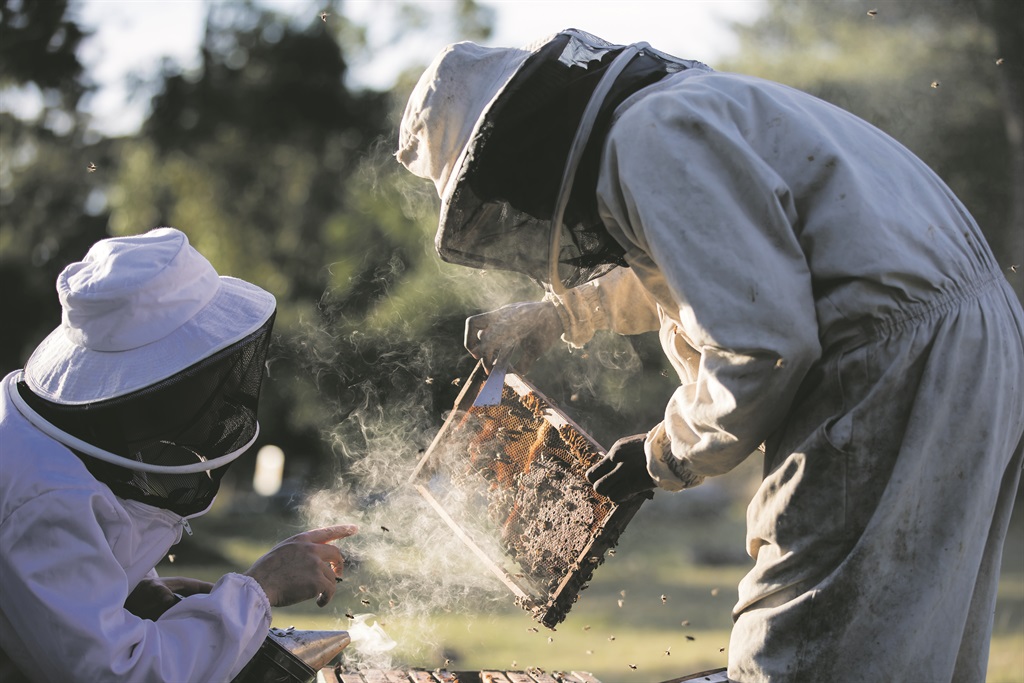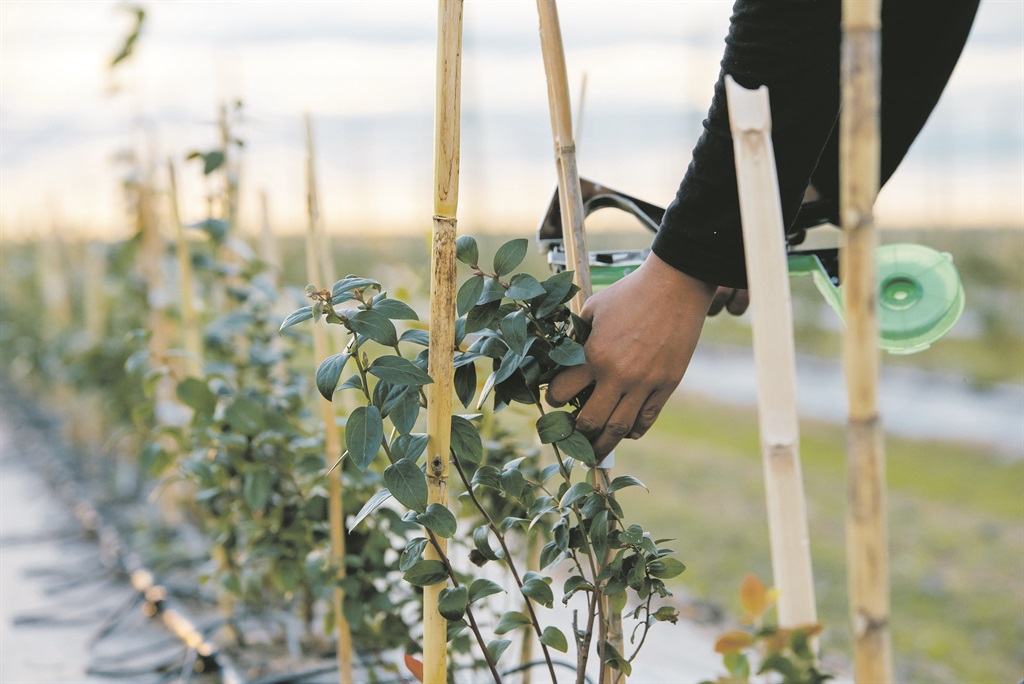
As ever more focus is being put on preserving our environment, investing in nature is an attractive opportunity, writes Maya Fisher-French
It is not often I get really excited about a new investment opportunity, but I have to confess that I really like the Fedgroup Impact Farming concept. It is simple to understand and has the potential to make a real impact on farming in South Africa, while also making investors a decent return.
As an investor, you’ll buy a blueberry bush, a beehive or a solar panel and, rather than farming it yourself, experts ensure your asset gains the maximum possible yield.
Fedgroup is a fully diversified financial services group that has a division specialising in income generation through property investing.
CEO Grant Field saw an opportunity to provide investors with an alternative income-generating asset while bringing a crowdfunding solution to farming.
Fedgroup invested in several farms and solar panel projects to understand how these could be used to provide a regular income for investors. After a year of testing the returns, it has made the assets available to the public via the Fedgroup app, available through Google Play and the Apple App Store.
This could bring real momentum to farming in South Africa, as Field envisages using the model to encourage commercial farmers to work with smaller farmers in developing their techniques. At the same time, it gives investors an alternative income-generating asset class.
HOW IT WORKS
An investor directly purchases a blueberry bush, solar panel or beehive and earns the income from the produce.
Solar Panels: These have been placed on commercial buildings and the electricity generated by the panels is sold back to the building. As an investor, you would buy a solar panel for R5 000 and, over the 20-year life span, you would receive an estimated internal rate of return of 10% a year, which means you will receive a total projected income of R14 500.
Bluberries: Fedgroup has partnered with a specialised blueberry farm that uses high-tech farming techniques from Australia. The plants are drip-fed, which reduces water usage, and farmed in tunnels, which protects them from the elements. The farm exports the berries, and supplies local retailers such as Woolworths and Pick n Pay. You can buy a blueberry bush for R300 and will receive a total internal rate of return of 12% a year over the eight-year lifespan of the plant. Over the eight-year period, you will earn a total projected income of R600 per bush.
Beehives: Fedgroup is working with one large-scale commercial farm and two smaller farmers. You buy a beehive for R4 000 and receive the profits from the sale of the honey and wax. The farmer makes money out of “renting” the hive out to large-scale fruit farms that need the bees for pollination. Projected income over the 10-year term is about R9 000.
WHAT YOU NEED TO KNOW
It took my 14-year-old son about five minutes to figure out how it works as the Fedgroup app is easy to use and explains the concept well by providing the necessary details on the assets. The graphs on the app show how income distributions are made.
Income Intervals - As income is tied in with the yield of the harvest, you only receive income twice a year in the case of blueberries and honey. Because solar energy is farmed all year round, the income is monthly, although it does vary depending on the number of sunny days.
Income Varies - The income will not be consistent over the period. In the case of blueberries, for example, it takes time for the bush to bear fruit and reach its maximum yield – you only get paid based on the amount of berries that are harvested. For example, in your first year, you would only earn R12 (4%), but, in year eight, you would earn R72 (24%) per bush. A beehive would give you R180 (4.5%) in the first year and R1 120 (28%) in year 10, and solar would give you R400 (8%) in the first year and R1 600 (32%) in year 20.
There is no capital gain, only income - At the end of the period, your plant, hive or panel has no value, so there is no capital paid. The returns illustrated on the app are an internal rate of return to illustrate the profitability of the investment.
Keep in mind that your actual rand return will be higher because you are also paid for the depreciation of the asset. The actual income works out to 17% to 21% a year.
In the example of the beehive, you would invest R4 000 and receive R9 000 back over 10 years, so, theoretically, your return less the capital invested is R5 000. If you do not need income, you could re-invest the income either in a high-interest bearing account or buy more farming assets and build your portfolio. This would boost your total return because it would have a compounding effect.
Long-term investing - As you are buying an actual plant, hive or panel, you are locked in for the full lifespan of that asset, which is eight years, 10 years or 20 years, respectively.
Fedgroup is creating a secondary market for those who need to exit the investment, but, ideally, you should only invest if you can remain for the full term.
Taxable income - This is not a fund, but rather direct ownership of an asset, and the income paid is revenue from your asset, rather than a dividend. As investors own the individual assets for income generation, the income generated will be subject to taxation as part of their income tax.
However, there are several tax deductions that can be applied for, such as section 11(e) for wear and tear on income-generating assets.
You can also claim under section 12B of the Income Tax Act for the generation of electricity from renewable sources and agriculture.
While Fedgroup helps clients with the necessary paperwork to submit these claims, they do not offer tax advice and asset owners need to speak to their tax practitioners about the best benefits available.
Money Wallet - Cash is stored in each asset owner’s Impact Farming wallet, where it earns interest at 4.5% a year, linked to the repo rate. Asset owners can keep this money in their wallet for as long as they choose.
Whenever the balance is more than R300, they can choose to have it paid out to them. They have the option of having the money paid out automatically every time the wallet reaches R300 or above, or to reinvest the money in the wallet and receive payouts on request. They can also use the money to purchase additional assets.
Costs - Fedgroup charges a 1% platform fee, which will be, for example, R3 a year per blueberry bush. The returns illustrated are net of the fee.
Insurance - The assets are covered by insurance, so, if a hailstorm destroys a beehive or solar panel, or your blueberry bush dies, you do not lose your money.
Risk profile - As the assets are insured, the risk of losing your money is low.
The risk is on the income generation as it will depend on the yield of the asset and, although managed by experts, there is never a guarantee when it comes to farming.
Also keep in mind that the income builds up over time, so this is not for someone who needs the maximum income in year one. Ideally, you should build up a portfolio of assets that provide a diversified income stream and then re-invest a portion to maintain a capital value.
While we could all go out and buy our own blueberry bushes or beehives, it is unlikely we would get the yield that high-tech farms produce (about 10 times more), and then who would we sell the product to other than our friends and relatives? But blueberries and honey are big business.
Blueberries are in high demand in countries such as the US and UK, and South Africa exports about 75% of its blueberry production.
You just have to look at the price of blueberries in your local food store to know that this is one seriously expensive berry.
Honey is facing a global shortage due to declining bee colonies. This not only has ramifications for pollination, but is also leading to all sorts of unethical practices, which include adding non-honey additives to honey products. Solar energy is considered the energy of the future, however, the costs of doing this on a small-scale off the roof of your home and trying to sell into the grid is prohibitive.
At this stage, solar requires large-scale projects, ideally with its own demand such as a commercial building. As electricity costs rise, so does the demand for solar power, especially for commercial buildings that can benefit from tax credits by using greener energy.
 |
| ||||||||||||
| |||||||||||||




 Publications
Publications
 Partners
Partners









